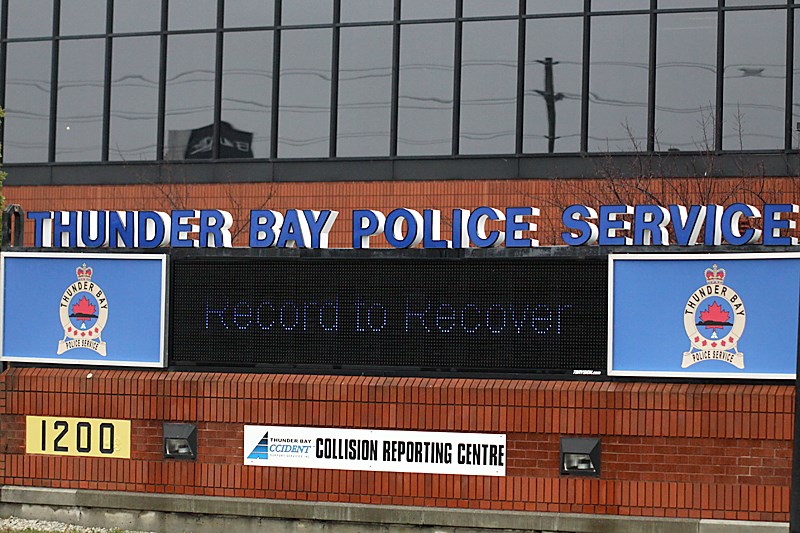THUNDER BAY - The independent civilian oversight body that is investigating the conduct of the Thunder Bay Police Service and its policing of First Nations people has outlined the specifics of its ongoing review.
In a release issued on Thursday, the Office of the Independent Police Review Director (OIPRD) detailed the nine key areas it will be examining during its systemic review of the Thunder Bay Police Service.
“Alarming questions have been raised about the way the Thunder Bay Police Service investigates the disappearances and deaths of Indigenous people,” Gerry McNeilly, independent police review director said in the release.
“Indigenous leaders and community members say that these investigations, and other interactions with police, devalue Indigenous lives, reflect differential treatment and are based on racist attitudes and/or stereotypical preconceptions about the Indigenous community.”
The review of the Thunder Bay Police Service follows several incidents in the last year that have called into question police conduct relating to the Indigenous community and investigations, including racist comments allegedly made by a Thunder Bay Police officer on Facebook in September and the drowning death of Stacey DeBungee last year that was first ruled accidental, but later found to include suspicious circumstances by a private investigator hired by the family.
While the review looks specifically at relations between Thunder Bay Police and the Indigenous community, McNeilly is calling it a systemic review.
“I don’t want to target it as a racism review because I’m looking at the existing policies and practice how the police investigate matters in general with regard to Indigenous people and the adequacy of training and if officers are being held accountable for the way they interact with members of the Indigenous community,” McNeilly said in an interview with CKPR. “I am looking at policing and policing attitudes and issues with regards to the Indigenous community.”
The OIPRD will be examining the following terms of reference as part of its review:
• Existing policies, practices and attitudes of the Thunder Bay Police Service as they relate specifically to Indigenous missing persons and death investigations, and more generally, to issues around racism-free policing, such as “over-policing” and “under-policing.”
• Whether missing persons and death investigations involving Indigenous Peoples are conducted in discriminatory ways.
• The adequacy and effectiveness of existing policies and identified best practices relating to the above issues.
• The adequacy of training and education provided to supervisors and front-line officers relating to the above issues.
• The extent to which compliance with existing policies or identified best practices is monitored and supported.
• The extent to which officers are held accountable for non-compliance.
• The extent to which the service communicates with Indigenous family members, communities and their leaders, engages in community outreach or has specialized liaison units.
• The extent to which complaints about the service’s interactions with Indigenous Peoples are inhibited by reprisals or fear of reprisals.
• Whether policies, practices, training, education, oversight and accountability mechanisms, and community outreach should be created, modified or enhanced to prevent discriminatory and ineffective policing, particularly in the context of investigations into the disappearances and deaths of Indigenous Peoples.
In an effort to conduct the review in as open a manner as possible, the OIPRD will be hosting a town hall meeting in Thunder Bay on a future date to collect input from the Thunder Bay and Indigenous Community. Written submissions from individuals and organizations on issues related to the terms of reference for the review will also be collected and accepted until Jan. 31, 2017.
McNeilly said he does not deal with criminality when conducting systemic reviews, however, if warranted, Thunder Bay police can carry out internal investigations based on any findings of his review.
“The purpose of the review is not necessarily to assign blame or individual faults, but to determine systemic failings and where there are problems and where things must be improved,” he said.
McNeilly hopes the review will be completed in spring 2017.
“That is an onerous undertaking, but given that the issues in Thunder Bay don’t seem to be abated in any way, I believe that I have to try to move as quickly on this matter as possible,” McNeilly said.
Thunder Bay Police chief, J.P. Levesque, said in a release on Thursday afternoon that he respects the mandate of the OIPRD and their role as a civilian oversight body.
"Our service will cooperate fully in the review process and it is our hope that any recommendations arising from the process will assist us, and other police services in Ontario, to move forward towards meeting the needs of our diverse communities," Levesque said. "We will continue to strive to work towards building a stronger relationship with the Indigenous community that we serve."
The news of the specifics relating to the OIPRD review follows a letter received by the Thunder Bay Police Service from Renu Mandhane, the chief commissioner with the Ontario Human Rights Commission last week, detailing immediate actions that should be taken by Thunder Bay Police to address allegations of racism.
“The Ontario Human Rights Commission believes that the allegations of racism and systemic discrimination within the TBPS require proactive, immediate, and independent steps to build confidence and trust in the TBPS,” Mandhane wrote in the letter.
“As a first step, we encourage the TBPS Chief and TBPS Board Chair to publically commit to a coordinated, time-bound, and appropriately resourced human rights organization change project,” Mandhane continued.
“Such proactive steps would be consistent with your ongoing obligations under the Ontario Human Rights Code, and may lead to diminished tensions between the Indigenous community and members of your service.”
Some of the Ontario Human Rights Commission recommendations include a comprehensive organizational change approach, committed and involved leadership, ongoing monitoring and evaluation, and ongoing communication and reporting.
The Thunder Bay Police Service Board will discuss the letter during a closed session on Nov. 15.
